Fly Sparge Water Temperature Test YouTube

Questions and request for inspiration for DIY HERMS(ish) system
It is generally accepted that up to a point, the hotter your sparge water the better or more efficient. This is generally agreed to be around 75°C (167°F). Above this temperature and tannins from the grain husks become soluble enough to be rinsed into the grain. There has recently been some research to suggest that cold sparging has no.

Sparge water and its temperature for homebrew YouTube
Step 1 - The Mashout. This is when you raise your mash to 170 degrees Fahrenheit or 77 Celcius. The reason for this temperature is that both stops the enzymatic conversion of starches to fermentable sugars, and makes the mash and wort more fluid and thus easier to sparge. To set this up, one pours the heated water into the mash tun.
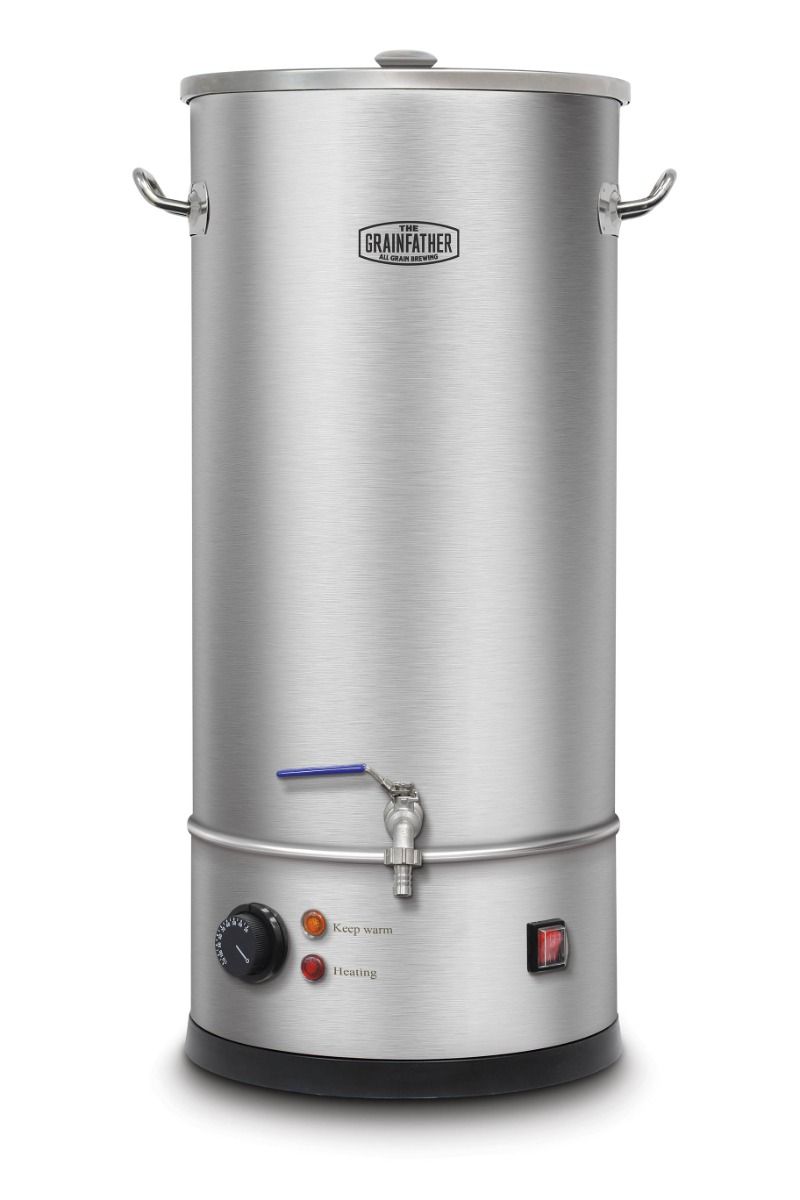
Grainfather 40L Sparge Water Heater. Spitting Feathers
Use this sparge and strike water calculator to determine how much sparge water will be necessary to rinse your mash and get you to the proper pre-boil volume. Out of all our calculators this is hands down the most used. If you constantly brew different beers like us, this calculator is your best friend. Each new batch of beer has different.

unnamed ProSonix
Typically, 1.5 times as much water is used for sparging as for mashing (e.g., 8 lbs. malt at 2 qt./lb. = 4 gallon mash, so 6 gallons of sparge water). The temperature of the sparge water is important. The water should be no more than 170°F, as husk tannins become more soluble above this temperature, depending on wort pH.

How To Calculate Strike Water Temperature SanctuaryBrewCo
The sparge water temperature is held down only because, as the sparge progresses, the mash temperature will slowly rise to the water temperature. Some brewers begin sparging with very hot water — say 185 °F (85 °C) — to raise the mash temperature quickly. This is an alternative to the mash-out step if you do single-infusion mashes in a.
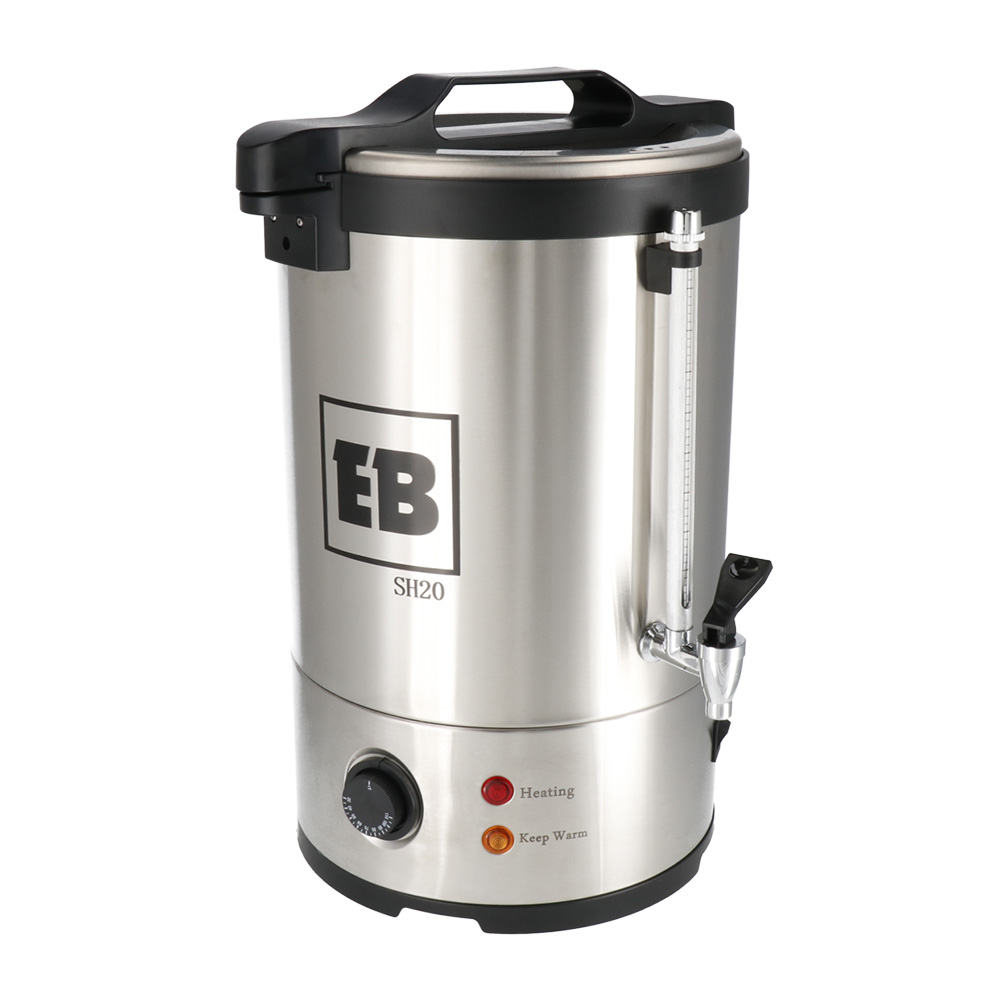
Easybrew Sparge water heater
Bear with me while I explain how commercial brewers normally mash out and sparge. Most commercial brewers use stirred mash mixers for mashing and raise the mash temperature to about 168 °F (76 °C) before pumping the mash to the lauter tun. When sparging ensues, the water temperature is normally controlled to about 168 °F (76 °C).

What Temperature Should Your Sparge Water Be?
14. Oct 15, 2009. #1. I see a lot of seasoned brewers stating they sparge with water with temps between 180-190 while John Palmer (and Jamil) state that you should never use water much above 170. Here's a direct quote from How to Brew: "The temperature of the sparge water is important.

Fly Sparge Water Temperature Test YouTube
From a thermodynamics perspective, it's true that sparging with cool water does actually conserve a slight amount of energy compared to sparging with warmer water. However, the tradeoff is time, as the cool sparge method leads to an ultimately cooler volume of wort in the kettle, which takes longer to bring to a boil.

BrewingMellowOgre0003 Checking the sparge water temperatu… Flickr
Sparge water temperature doesn't matter at all, as long as it's not too hot (over 190 or so as a guess). Reply. Reactions: IslandLizard and z-bob. BigJoeBrew Well-Known Member. Joined May 13, 2013 Messages 196 Reaction score 72 Location Kansas City. Aug 24, 2017 #8

Heating Sparge Water for the bigbrew. We certainly couldn't have asked
Here are a couple of tips to help increase batch sparge efficiency: Mix it up. After adding your sparge water to your mash/lauter tun, stir it well to mix up the grain bed and help extract those delicious sugars. Let it sit for a few minutes before proceeding with your vorlauf and runoff. Adjust your grain crush.

Sparge Water Heater 18 L Water heater, Heater, Water heating
When it comes to sparge water temperature, the general consensus is to maintain a range between 168-170°F (76-77°C) throughout the wort collection. This temperature contributes to improved lautering, as sugary solutions are less viscous at higher temperatures, allowing for easier separation from the grains.
Le Birre del Giò Nuovo sistema di fly sparge
Mash Out Water Volume Formula: WV = (TT - CT)(.2GW + CWV)/(210 - TT) AWV= Added Water Volume (Boiling, but you will lose a degree or two, so we adjusted to 210 in the formula) TT = Target Temperature of the Mash; Current Temperature of the Mash; GW = Grain Weight (lbs) CWV = Current Water Volume (Water you have already added to the mash)
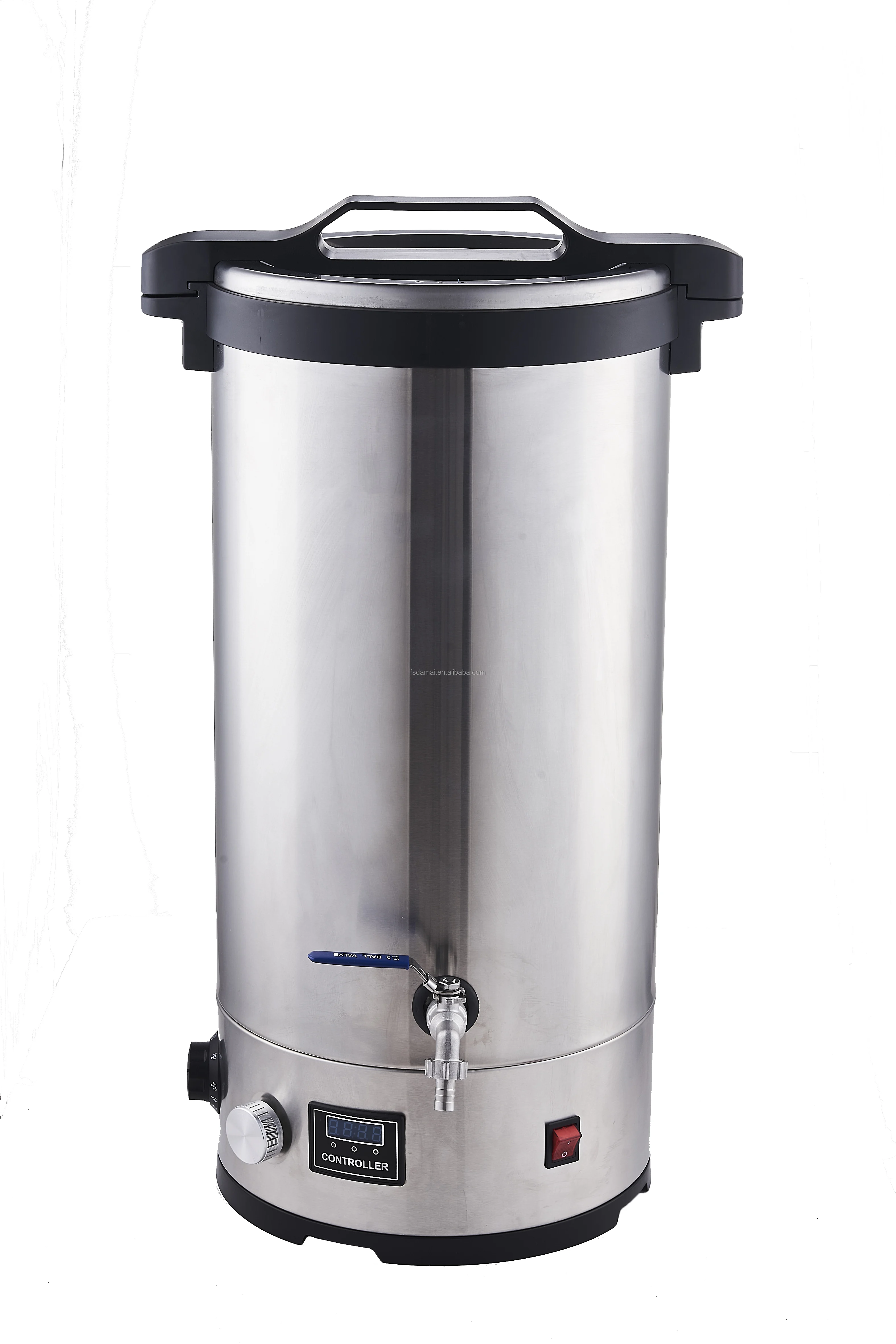
Luxury Design 30l Led Style Temperature Control Sparge Water Heater Hot
Your sparge water should be heated so that your grain bed remains at 168-170 °F (76-77 °C). A little over in the early stages of sparging doesn't hurt. In all-grain brewing, after the grains are mashed, the wort is run off to the kettle. To ensure that as much of the sugar is recovered from the grain bed as possible, it is rinsed with.
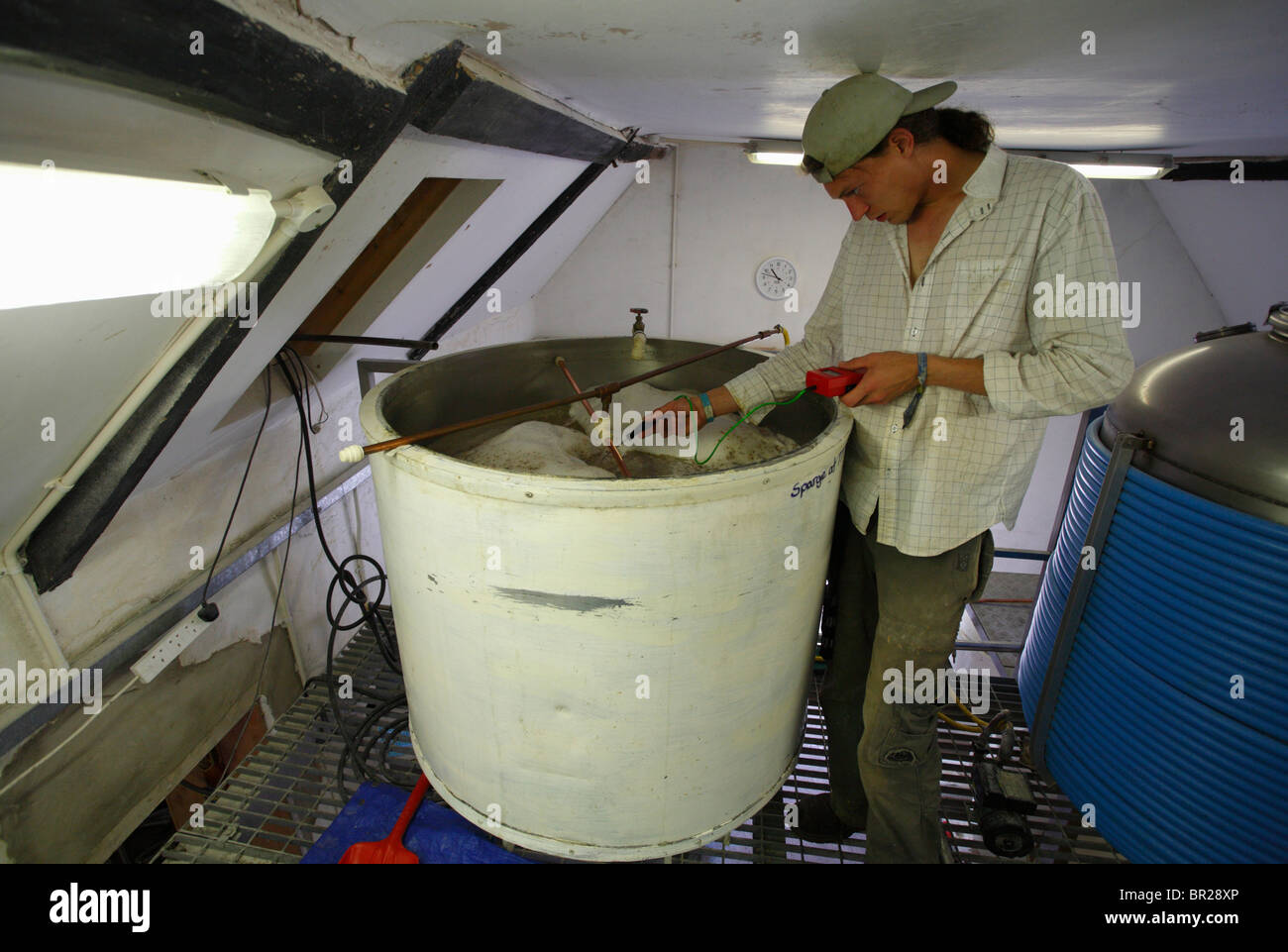
A brewer testing the water temperature at the sparge arm during
Even when you are attempting to fly sparge, then you need to maintain the temperature of your sparge water throughout the process. It is less of a concern, in my option, if the wort which is already drained from the mash tun loses some heat, but I would definitely want to keep my sparge water within the 168-170°F range as far as possible.
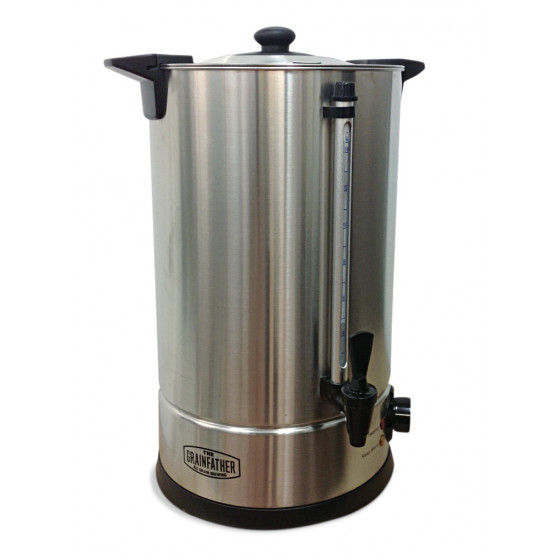
Grainfather Sparge Water Heater (NZ/AU 18L) Grainfather League of
Follow us: Mash Water & Sparge Water Calculator for homebrewing. Calculate the Mash & Sparge Water for your homebrew. Type in your Variables and Constants to calculate the Sparge Water for your brewday. Variables.
Dilution of Sparge Water and Adding Acid (Brunwater) Homebrewing
If the sparge water is also warm, it will certainly liquify not just sugars, however additionally tannins from the grain husks. When sparging is gone over in the homebrewing literary works, the ideal temperature level of sparge water is inevitably offered as 168-- 170 ° F (76-- 77 ° C). If your sparge water is 168-- 170 ° F (76-- 77 ° C) in.